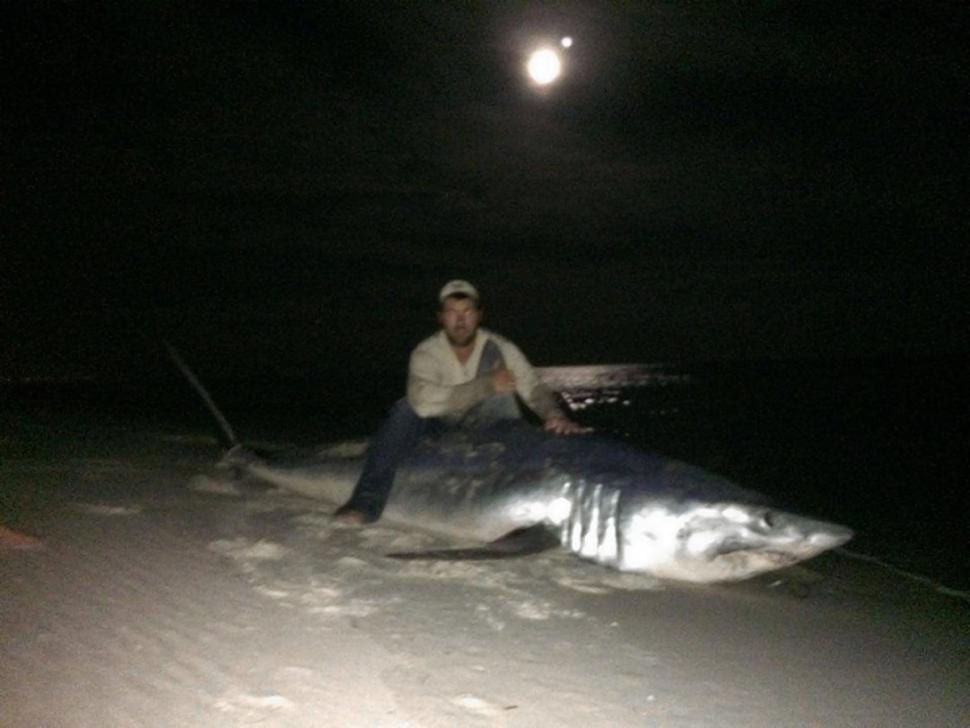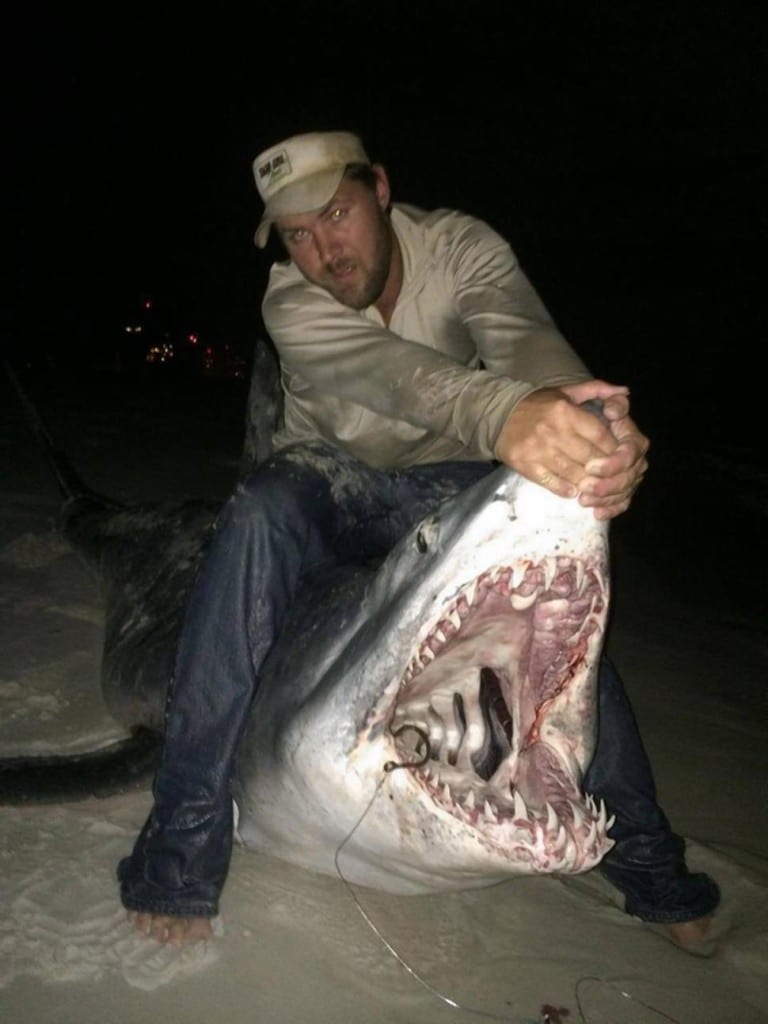Florida fisherman Joey Polk reeled in a record setting catch earlier this month when he caught a 11-foot, 805-pound mako shark off the Florida Panhandle. The craziest part about the feat is that he caught the behemoth from land, so surfers watch out!
The Milton, FL resident battled the shark for over an hour as the shark easily pulled out 2,700 feet of line. Polk told the Houston Chronicle that the shark’s strength was so tremendous that the line from his reel was doing “easily 60 miles an hour.” Initially intending to catch and release the mako, Polk decided there was no other option but to keep the shark after several attempts to revive the creature failed.
“We tried to revive the fish and send him back out, but he was too worn out to swim,” the 29-year-old told the New York Daily News. “That’s why we decided to keep him. We don’t do it for the money, for the publicity, just to catch the fish.”
The International Land-Based Shark Fishing Association (ILSFA) recognized the feat as the largest land-based mako catch ever. After authentication, Polk rounded up 200 of his closest friends and family to barbeque the record setting catch.
The Polk family has a history of setting several shark records throughout Florida. Polk’s catch actually broke the mako record set by his cousin, Earnie Polk, who accompanied him on the record setting catch. Surprisingly, this isn’t the biggest shark Joey Polk has caught. In 2010 he set the ILSFA record for the largest tiger shark caught at 950-pounds.
“This is probably our best catch ever,” Polk told the Daily News. “They are not supposed to be here. They are open water fish and tend to stay in cold deeper waters.”










